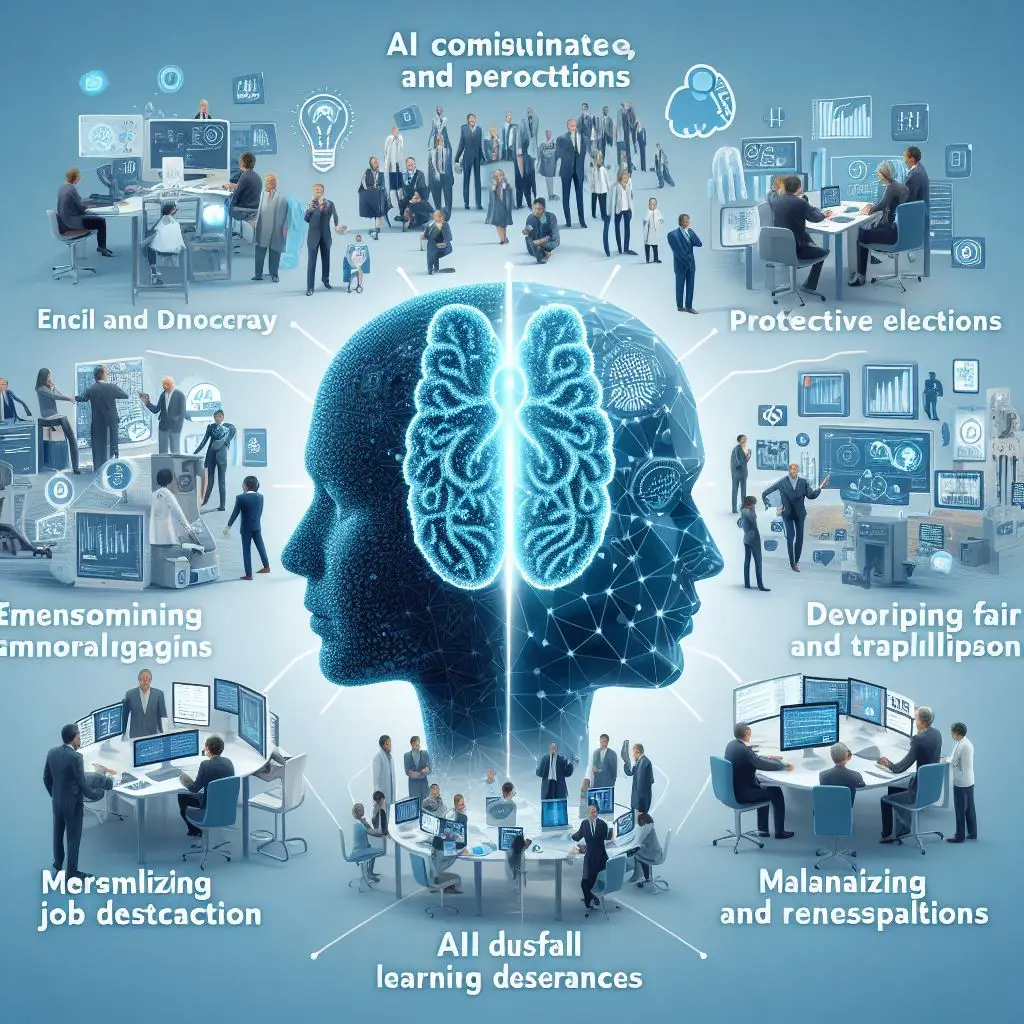OpenAI’s Groundbreaking Collaboration OpenAI’s collaboration with the Pentagon on cybersecurity projects is a testament to AI’s growing influence in national security. This partnership has sparked a global conversation on the ethical use of AI in military contexts.
AI and the Future of Work The AI Governance Summit at Davos brought forward a set of recommendations on the impact of AI and large language models on jobs. The summit highlighted the need for a balanced approach to AI governance that fosters innovation while considering the socio-economic implications.
Generative AI: A Creative Revolution The forum discussed the expanding universe of generative models, exploring their potential to revolutionize creativity and innovation. The need for interoperability and best practice sharing was emphasized to harness the full potential of generative AI.
AI: The Great Equalizer AI’s role as a great equalizer was a topic of interest, with discussions on how it can bridge gaps in access to information and resources. However, this requires deliberate efforts to ensure inclusive AI development and equitable access to its benefits.
Ethics in the Age of AI Ethical considerations in AI development were a major focus, with leaders advocating for the education of citizens on how AI tools work. This is crucial for ensuring that AI aligns with ethical principles and respects human rights.
AI’s Analytical Power in Climate Action AI’s analytical capabilities were recognized for their contribution to climate action, with discussions on optimizing energy systems and resource management. Stakeholders are encouraged to leverage AI to enhance climate resilience strategies.
AI as a Transformative Technology Leaders at Davos compared AI’s transformative potential to that of the internet and the printing press. The technology is expected to profoundly change our world, necessitating discussions on responsible harnessing of its benefits.
AI and Intellectual Property Intellectual property rights in the age of AI were discussed, with a focus on the need for interoperability and best practice sharing among stakeholders. This is crucial for fostering creativity and innovation while ensuring fair use of AI technologies.
AI’s Impact on Global Cooperation AI’s impact on global cooperation was examined, with a focus on how it affects economies, industries, and global issues. The forum served as a platform to rebuild trust and develop partnerships for improving outcomes for people and the planet.
Security and Cooperation in a Fractured World The discussions at Davos also touched on security and cooperation in a geopolitically fractured world. AI’s role in trade, growth, climate action, and technological development was highlighted against the backdrop of global peace and security challenges.
AI and Global Growth AI as a driving force for the economy and society was a central theme, with a focus on creating growth and jobs for a new era. The forum explored how AI could contribute to economic prosperity while addressing the risks associated with its deployment.
AI, Climate, Nature, and Energy The intersection of AI with climate, nature, and energy was explored, emphasizing AI’s role in long-term strategies for climate action. The discussions highlighted the need for AI solutions that are aligned with environmental sustainability goals.

AI and Democracy The role of AI in democracy preservation was a key concern, with discussions on how AI can be used to combat misinformation and protect the integrity of elections. Developing AI-powered tools to detect and mitigate false information is essential for democratic institutions.
AI in Healthcare AI’s application in healthcare was discussed, highlighting its potential to transform patient care through predictive analytics, personalized medicine, and efficient resource management. The ethical deployment of AI in healthcare requires careful consideration of privacy and bias.
AI and Financial Services AI’s role in financial services was explored, with a focus on how it can enhance financial inclusion, risk assessment, and customer service. The need for regulatory frameworks to manage the ethical use of AI in finance was emphasized.
AI and Job Displacement The potential for AI-driven automation to displace jobs was a topic of concern. Discussions centered on strategies to mitigate job displacement and foster workforce reskilling and upskilling initiatives.
AI and Bias The issue of bias in AI was addressed, with leaders calling for the development of AI systems that are fair and transparent. Ensuring that AI does not exacerbate existing inequalities is paramount.
AI and Privacy Privacy concerns in the age of AI were discussed, with a focus on the need for robust data protection measures. Balancing the benefits of AI with the protection of individual privacy rights is essential.
AI and Global Security AI’s implications for global security were examined, with discussions on how AI can be used to enhance cybersecurity and intelligence analysis. The ethical use of AI in security contexts remains a critical issue.
AI and Sustainable Development AI’s role in sustainable development was highlighted, with discussions on how it can support the United Nations Sustainable Development Goals. AI offers solutions to challenges such as poverty, inequality, and environmental degradation.
AI and Innovation The forum explored AI’s role in driving innovation, discussing how AI can accelerate research and development across industries. Fostering an environment that encourages AI-driven innovation is key.
AI and Global Policy The need for global policy frameworks to govern AI was emphasized, with discussions on how to establish common ethical standards and principles for AI deployment worldwide.
Conclusion
AI at the Crossroads The World Economic Forum in Davos underscored AI’s status as a defining technology of the 21st century. The discussions emphasized the need for collective action to ensure AI’s responsible and ethical development, highlighting its role in shaping the global agenda and serving the common good









Add a Comment: